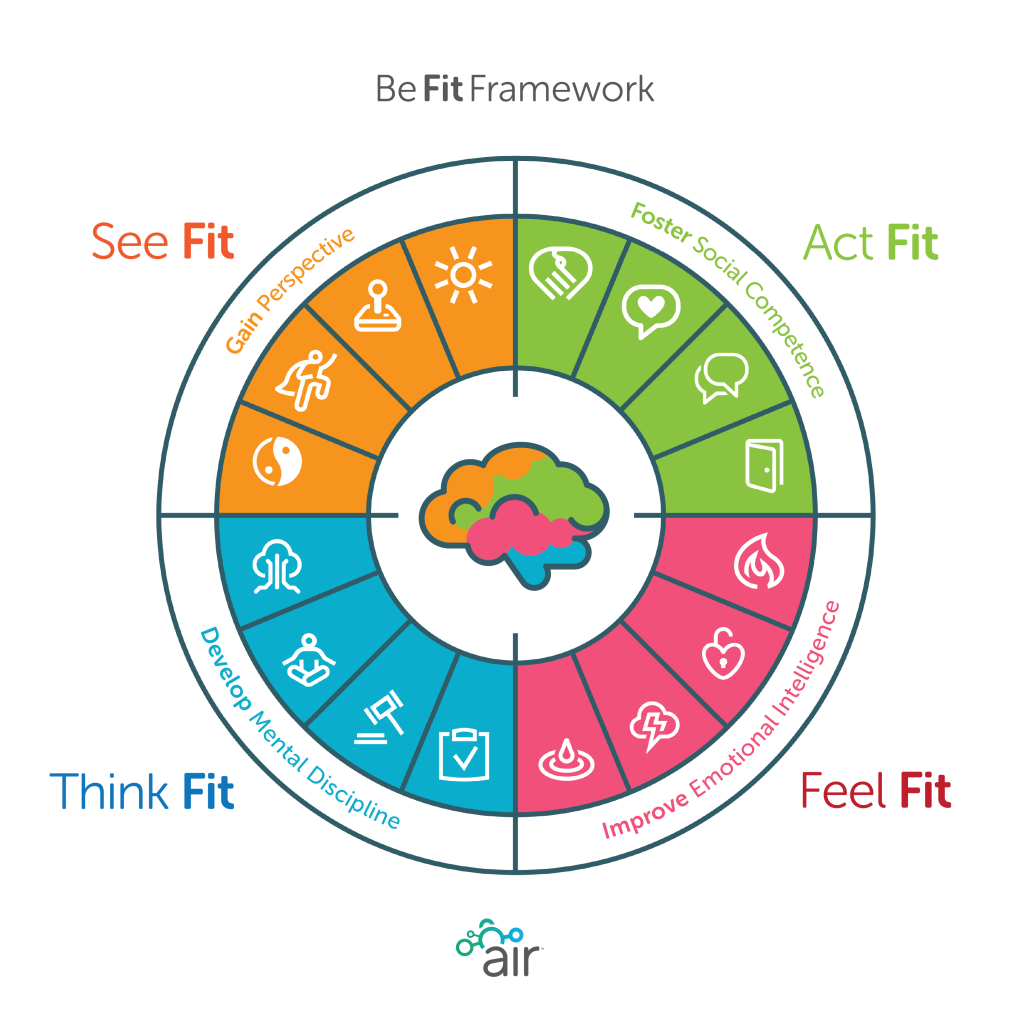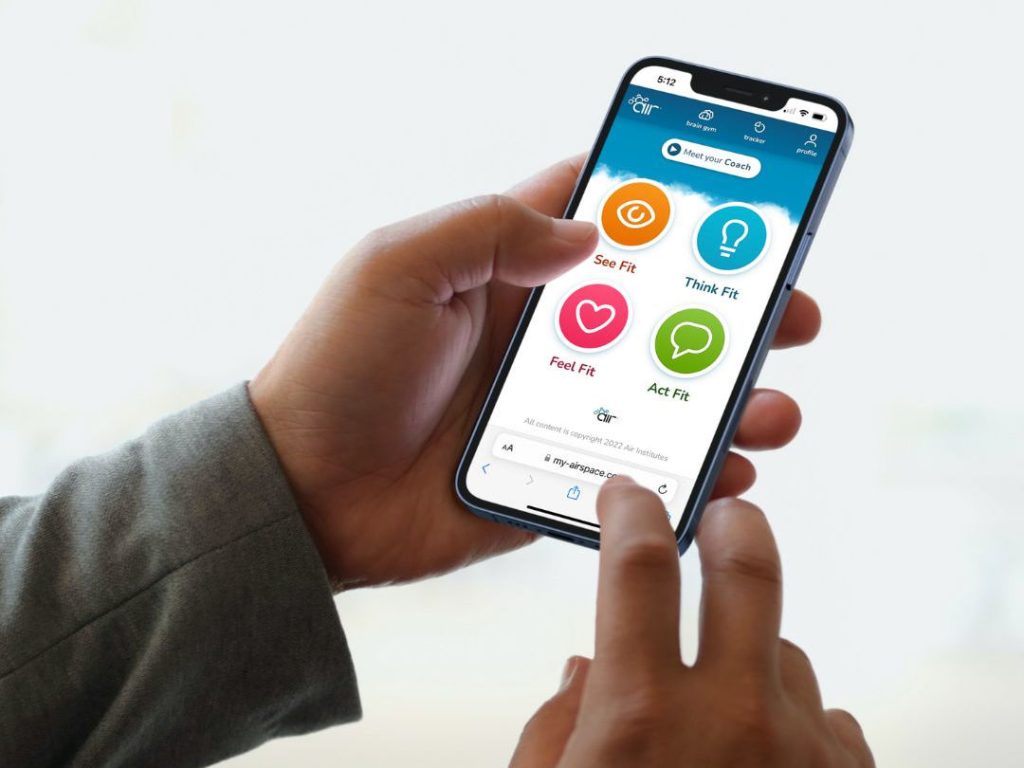What is AIR
all about?
We’ve built a theoretically grounded resilience framework to improve mental health & performance.

A Theoretically Grounded Resilience Framework
Developed through Dr. Jackie Kinley’s research and experience, our Be Fit Framework is a theoretically grounded construct. Our Framework makes mental resilience easy to understand. It is a comprehensive and actionable Framework that underpins our products and services.
The premise behind the Framework is simple: If you SEE, THINK, FEEL and ACT FIT you will BE FIT.
Each of the domains delineates further into four factors each. All factors are associated with resilience, mental health, wellness, and performance.
A Health Risk Assessment (HRA) that doesn’t screen or discriminate
The Functional Resilience Question-AIR is a validated 64 item HRA that measures resilience. It identifies key resilience strengths and growth opportunities.
The assessment provides development recommendations based on the 16 factors from our theoretically grounded Be Fit Framework.


An Evidence-Based Curriculum
We all have the capacity to be resilient – but we don’t all have the tools we need to reach our potential. That’s where our evidence-based curriculum
comes in.
Our curriculum is comprehensive and based around our Be Fit Framework. There are 16 “mental muscles” with 48 skills that can be learned and developed with practice.
All skills are informed by research and best practices.
Rooted in Neuroscience
Our Be Fit Framework and curriculum is rooted in neuroscience. The domains of the Framework target interconnected brain networks, such as the association cortex, amygdala, brain stem, central executive network, limbic system, default mode, mirror neuron system, and dorsolateral prefrontal cortex.
We also leverage the science of neuroplasticity. At the right levels,
stress promotes the growth and development of the brain. Our
curriculum is designed to create conditions that are optimal for positive neuroplastic change. We call this approach mental fitness.
Mental fitness is fundamentally proactive and optimistic. You have the capacity to physically change how your brain is wired by repeatedly interrupting old patterns and replacing them with new, more adaptive patterns of thinking, feeling, and behaving.

The Resilience Effect

Improved Psychological Safety
Our training programs have proven effective in increasing psychological safety by 39%, resilience by 22%, and civility by 9%.

Alleviated Stress, Anxiety & Depression
Post-training measures reveal our participants experienced a 60% reduction in depression and a 31% decrease in stress.

Elevated Engagement
Participants who completed our training program reported a 22% decrease in burnout and 16% increased engagement.
A Unified Approach That Works
No more piecemeal programs or short-term fixes. The AIR Ecosystem is a complete solution—grounded in science, backed by data, and designed to embed resilience across your organization. It offers a consistent, scalable framework that aligns leaders, managers, and employees around a shared strategy for mental fitness and behavior-based safety.
We make resilience structural, not situational.
Benefits of the AIR Ecosystem
- Strengthen Culture: Shift from reactive fixes to a caring, structured system that prioritizes mental fitness and shared accountability.
- Prove ROI: Track resilience trends and outcomes using SpringBoard data to guide budgets and reporting.
- Support HR & Health Teams: Streamline workflows with tools to assess readiness, guide support, and document actions.
- Reduce Risk: Spot stress and burnout early, before they trigger performance, safety, or disability issues.
- Go Beyond EAPs: Offer proactive coaching that targets the real roots of distress—relational, cognitive, and emotional.
- Improve Return-to-Work: Ease transitions with tailored coaching that builds capacity and prevents relapse.
- Cut Absenteeism Costs: Catch strain early to avoid leaves, saving up to $40K per case.
- Align Strategy & Action: Unite your people around a clear framework that connects individual well-being to organizational outcomes.
What's your Resilience Score?
Do you want to know?
Find out in 10 minutes or less.
